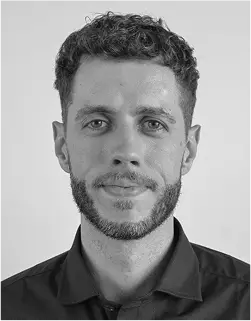
Prashant Hegde
QA Lead
MoEngage Inc
Prashant Hegde is a passionate tester. He has ably led test teams to success in many organizations and helped them improve their application quality process. Prashant currently heads the QA team at MoEngage. MoEngage is the leader in the mobile engagement market, with a presence across Asia, Europe, and the US.
Prashant is an agile enthusiast and has worked in different roles on agile teams for the last five years. Prashant enjoys sharing his experiences by blogging and participating in agile communities around the world. Prashant is a Certified Scrum Master and a frequent speaker at industry conferences. Prashant has helped thousands of ISTQB aspirants to clear their certifications with his free app, ISTQB Test Mentor.
Prashant is an active participant in our community and has received the Golden Feedback of the Week Award. In order to know more about his background and gain some insight into his passion for the work he does in Quality Assurance, we decided to ask him some questions about his experiences, personal development, and advice for those looking to advance their QA careers.
How did you get into QA and can you share insights on your early days in your career?
I was confused about my career after my graduation. The biggest challenge was figuring out what I really wanted to do. There were more choices than ever before. I was getting a lot of advice from my friends and family. I took my time and decided to pursue what excites me. I identified that my passion is in Software Testing.
My first job was as a game tester. Gamer’s may feel video game testing for a living would be a dream job. However, game testing is excessively strenuous and unrewarding, both financially and emotionally. It was a 6 month contract with low pay, no benefits and absolutely no job security. From there, I have come a long way.
After quitting game testing, I moved to web application testing, and over the years I gained expertise on testing mobile applications. If you aim to make your way up in any organization, you’ll have to take on more responsibility at work. I started to take more responsibility in the early part of my career. I started leading a small team and ensured that the product I test met the highest quality in tight schedules and deadlines. I had a growth mindset, broadened my knowledge, and kept refining my skills, and this helped me to grow rapidly in my career.
Apart from being a tester, in the past five years I have worked on and played different roles like a scrum master and product owner. I currently lead the QA team at MoEngage.
Your company MoEngage is listed in Gartner for the second time in a row. Can you brief us about it?
MoEngage has been featured in the Gartner Magic quadrant for the second time in a row for Mobile Marketing platforms. MoEngage is taking on the big players in Mobile Marketing one giant step at a time. In this year’s report, we have made the most significant progress within the quadrant when compared to any other vendor. MoEngage is the youngest company listed in the magic quadrant and, moreover, the clients rated their overall experience with MoEngage among the highest across all the vendors.
We are very proud of this recognition and will continue to invest into our customer success, product innovation and engineering towards building the most trusted customer engagement platform for the mobile-first world.
What does your typical day look like as a Quality Assurance Leader?
We have an automated standup meeting every day on Slack that helps me to get visibility about everyone’s tasks without taking a half-hour out of anyone’s day. My day starts with checking out the impediments my team is having and resolving them.
Meetings are a part of work where important decisions are made. Every day I have a few meetings to attend as a QA representative and advocate.
I work with teams across the organization to ensure quality throughout the software development lifecycle and coordinate on releases ensuring that we are achieving them within defined timelines. Also reporting current testing progress, plans, and impediments of multiple teams to upper management and other stakeholders. Getting feedback from management and carrying out the suggested changes in the most efficient way as possible
I work as an individual contributor with a couple of teams. I am involved in defining and implementing test strategies. The tasks include writing and executing automated test cases and sharing reports with the respective developers.
Growing a team requires dedicated effort by team leaders to find, recruit, and hire the best candidates and onboard them. My tasks include mentoring and onboarding the newbie testers and conducting interviews for open roles in the organization.
You hold a variety of certifications both in testing as well as in Scrum. Can you share some insights on this?
Certifications are like Pokémon, gotta catch ’em all!
Certifications are addictive sometimes. I hold multiple certifications like ISTQB CTFL/PSM1/Six Sigma Green Belt, and Certified product owner to name some. I have also helped thousands of ISTQB CTFL aspirants to clear their certifications with my free app ISTQB Test Mentor.
There is a lot of debate in the industry about certifications and their worth. I feel that there is no harm in getting certified. I feel getting certified is a good aid for learning and self-assessment. Certifications help us expand our knowledge base, beyond that of our everyday tasks and helps bridge educational/theoretical gaps.
However, employers should never miss out on a good candidate with essential skills by looking for certifications instead. I’ve hired QA engineers for the last 4 years, and I’ve never preferred a certified tester over a non-certified tester. For me, experience and practical knowledge are more important than certification.
You are handling multiple teams. How do you empower them?
I believe that teams must be self-organizing and self-directed to succeed in an agile environment. I focus on moving in that direction.
As a leader, it’s important to trust the members of the team. I assign each member of the team with responsibility for a specific part of the product, that way they feel ownership for that work, but also understand how their work isn’t done in isolation but as a part of the team.
To further empower the team, I give them more authority and try to develop new leaders. To fully empower the team, I let them make decisions on their own. I don’t act as a manager, but as a mentor to my team. Instead of giving orders, I try to coach the team and lead them to act independently. I help team members to grow by assigning them with challenging tasks and training them on the required skills to further their development. I believe that investing in your team’s growth will guarantee you a high-performing team.
I take a moment to reward and acknowledge a job well done. It’s extremely important for empowering the team. Acknowledging a team member’s good work will boost their confidence and empower them.
Things are changing rapidly in Quality Assurance. Who are some people you follow/look up to?
I am a fan of James Bach and a believer of the context-driven school of software testing thought. Parimala Hariprasad is one of the people who I look up to. She reviewed my first proposal for a conference. Her feedback helped me to gain confidence in my abstract and for conference speaking.
Pooja Shah and I work together at MoEngage, and she a renowned automation expert and a frequent speaker at industry conferences.
Below are few more testers who I look up to –
Cem Kaner | Micheal Bolton | Anne-Marie Charrett | Lisa Crispin| Santosh Tuppad |Katrina Clokie
Can you share your wisdom of thoughts to the aspiring Quality Assurance professionals?
Generally, graduates aspiring to be a successful IT professional assume that the term ‘IT Professional’ is synonymous with ‘Software Developer.’ There is a misbelief spread amongst individuals about software testing. Many think there are limited growth opportunities if they chose software testing as their career. This is deep-rooted in the minds of many people. These days, the quality of the product directly affects the brand’s reputation. The end-users will get a negative opinion on the brand itself if their app or website performs poorly. So no one is ready to compromise on quality. Almost every company is hunting for testers, starting from exploratory testing to automation architects. QA professionals are paid and treated at par with developers in all aspiring organizations.
For aspiring QA professionals, I would suggest them to get a formal QA training and cultivate both technical as well as interpersonal skills. Learn the fundamentals of testing and gain a good grip on at least one scripting language. Several aspirants assume that testing is an easy job and anyone can be a tester. Software testing is a challenging job and it demands traits like understanding testing methodologies, coding, creativity, problem-solving, planning, an eye for detail, patience, communication, and a lot more.
What products/apps/services do you use on a regular basis?
- QA Touch – Test case management
- JIRA – Requirement management/Defect management
- Slack – Team communications
- Katalon Studio – UI automation
- Jenkins – CI/CD Pipeline
- Postman/Newman – API testing/Automation
- Octoperf and Jmeter – Load testing
- Browserstack – Browser Compatibility testing
- Xmind/Coogle – Mind Mapping/Brainstorming
- TestBuddy/Rapid reporter – Exploratory testing
- Bug Magnet – Exploratory testing assistant
Anything else you would like to share with the QA Community/want them to know?
Feel free to contact me through Twitter, LinkedIn.
Also, I share my experiences and thoughts in my blog and on my personal website.
Thanks very much for this opportunity to present myself as a member of a community that has always embraced its members with a genuine desire to spread prosperity and positive work acclaim!!
Thank you, Prashant! You inspire us to do better.







